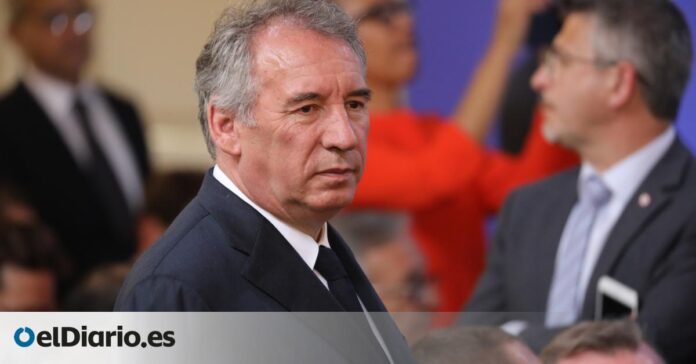French Prime Minister François Bayrou faced his first major test in parliament this Thursday. A censure motion filed by the French Insoumise party on Tuesday, with support from environmentalist and communist MPs, was unsuccessful as it did not receive enough votes.
This was an expected result, as the far-right had announced the day before that it would not censor. a priori‘, making it impossible to reach the 288 votes needed to overthrow the executive branch. This abstention was joined at the last minute by a member of the Socialist Party. A few days before the decisive vote, all parties except the Socialist Party announced their positions. The motion ultimately received only 131 votes.
Over the past few weeks, socialist leaders, along with ecologists and representatives of France’s Communist Party, have been negotiating a possible non-censorship agreement with the Bayrou government, which has the backing of a centrist coalition and conservative lawmakers. Republican.
And in this sense, if on Tuesday morning the General Secretary of the Socialists, Olivier Faure, was optimistic about the possibility of concluding said agreement; Prime Minister Bayrou’s general policy statement on Tuesday I had stopped talking. In his speech, Bayrou agreed to restart discussions to amend the agreement. Pension reform in 2023at the request of the PS, but added that “in the absence of an agreement, current law will continue to apply.”
This was an unacceptable condition for the left-wing parties that took part in the negotiations (only France-Ansemes refused to meet with the government). They believe this is tantamount to giving employers veto power and supporting the status quo of the law. “It is clear that negotiations will never end successfully if employers know that reforms will be applied if negotiations fail,” added Sophie Binet, general secretary of the General Labor Conference.
Boris Vallow, leader of the parliamentary socialist group, replied: “The accounts still don’t add up, Prime Minister.” “We have accepted our responsibility, you will accept your responsibility.” But after Mr. Bayrou’s speech, environmentalists and communists immediately voted to add an additional vote to the motion submitted. However, the Socialist Party postponed the decision until the last minute. “Officials from the Socialist Party and parliamentary groups will meet between now and the censure debate,” the party leadership declared to Agence France-Presse on Wednesday night.
crack on the left side
In a bid to convince socialists, Mr Baillou on Wednesday afternoon said he would present a new text on pensions to parliament if “progress” is achieved between the social partners “even in the absence of a general agreement”. , made it clear that they would approach PS’s demands. He also signaled a new left-leaning stance by canceling a plan by his predecessor, Michel Barnier, to cut 4,000 jobs in the national education sector.
Bayrou’s gesture finally succeeded in persuading the socialists. Speaking on the parliamentary bench, Secretary-General Olivier Fauré emphasized his formation’s “openness to commitments” and noted that the socialists had achieved “concessions that would not have existed without debate.” to justify the vote. Addressing criticism of the formation of France Insoumise, he added: “We are not ashamed to negotiate,” and promised to give “every opportunity to negotiate.” In the same intervention, he warned Bayrou: “We do not accept the status quo.”
The position of socialists, communists and environmental activists who have agreed to negotiate with the government has become a source of tension with their ally in the New Popular Front (NFP) coalition of progressive forces, the Parti Answers France (LFI). are. LFI leader Jean-Luc Mélenchon was particularly critical, accusing the leaders of his former party PS of being “subservient” before announcing his abstention.
Minutes after learning of the Socialist Party’s decision not to hold a censure vote along with the rest of the left, Mélenchon reacted on social network X with the following message: “The PS has collapsed the New Popular Front. But he surrenders alone. Three other groups voted for censure. “We will continue to fight.”
The pressure exerted on the socialists by a rebellious leader also makes other members of the coalition uncomfortable. “Frankly, if Jean-Luc Mélenchon told socialists to go back to their booths!” ”, lamented Los Ecologitas Marín Tondería, secretary general.
expectations for the future
The announcement by far-right MPs that they would not vote in favor of censure criticized the viability of the motion, but this first vote was an important test, especially for Bayrou’s future room to maneuver. . Budget, its processing denounced Michel Barnier and his governmentwas withdrawn by a motion of censure that followed the statutory approval of the document.
The current government’s bill, which is based on a bill written by Mr. Barnier, began consideration in the Senate this week and is expected to be submitted to a parliamentary committee within the next few days. The government has announced that it hopes to approve the budget law by March 1st.
This will require reaching a new agreement with the socialists, even if only minimally. When the time comes, Bayrou will require socialist abstentions, either in a vote on the law or in a new censure motion if approved by decree.
All of this can be done without losing support among centrists and conservatives. “Apparently 84% of French people believe that the government will not arrive by the end of the year,” François Bayrou quipped on the parliamentary bench on Tuesday. “Sometimes I wonder where the other 16% get their optimism…”
















